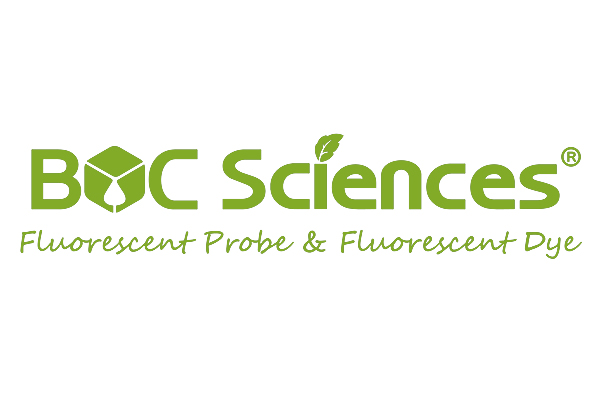
NIR-641 N-succinimidyl ester | CAS 190714-26-2
| Catalog Number | F02-0028 |
| Category | Other Cyanine |
| Molecular Formula | C37H44ClN3O4 |
| Molecular Weight | 630.22 |
* Please be kindly noted products are not for therapeutic use. We do not sell to patients.
Product Introduction
NIR-641 N-succinimidyl ester is a potential compound in the biomedical field and plays an integral role in promoting the labeling and imaging of biomolecules. Its unique structure caters for the precise fusion of fluorophores with proteins, DNA, and other important biomolecules, enabling exquisite biological imaging.
Chemical Information
Product Specification
Application
Computed Properties
Patents
| Synonyms | 1-Ethyl-1-[5-(N-succinimidyloxycarbonyl)pentyl]-3,3,3,3-tetramethyl-indodicarbocyanine chloride, NIR-641 NHS ester |
| Purity | 98% |
| IUPAC Name | (2,5-dioxopyrrolidin-1-yl) 6-[2-[(1E,3E,5Z)-5-(1-ethyl-3,3-dimethylindol-2-ylidene)penta-1,3-dienyl]-3,3-dimethylindol-1-ium-1-yl]hexanoate;chloride |
| Canonical SMILES | CCN1C2=CC=CC=C2C(C1=CC=CC=CC3=[N+](C4=CC=CC=C4C3(C)C)CCCCCC(=O)ON5C(=O)CCC5=O)(C)C.[Cl-] |
| InChI | InChI=1S/C37H44N3O4.ClH/c1-6-38-29-19-14-12-17-27(29)36(2,3)31(38)21-9-7-10-22-32-37(4,5)28-18-13-15-20-30(28)39(32)26-16-8-11-23-35(43)44-40-33(41)24-25-34(40)42;/h7,9-10,12-15,17-22H,6,8,11,16,23-26H2,1-5H3;1H/q+1;/p-1 |
| InChIKey | QNVXMFIPFKQFIP-UHFFFAOYSA-M |
| Storage | 24 months after receival at -20°C in the dark. Transportation: at room temperature for up to 3 weeks. Avoid prolonged exposure to light. Desiccate. |
| Signal | Warning |
| GHSHazardStatements | H315 (100%): Causes skin irritation [Warning Skin corrosion/irritation] H319 (100%): Causes serious eye irritation [Warning Serious eye damage/eye irritation] H335 (100%): May cause respiratory irritation [Warning Specific target organ toxicity, single exposure; Respiratory tract irritation] |
| Precautionary Statement Codes | P261, P264, P264+P265, P271, P280, P302+P352, P304+P340, P305+P351+P338, P319, P321, P332+P317, P337+P317, P362+P364, P403+P233, P405, and P501 (The corresponding statement to each P-code can be found at the GHS Classification page.) |
NIR-641 N-succinimidyl ester, a near-infrared fluorescent dye, finds diverse applications in bioscience.
Immunofluorescence Assays: Utilizing NIR-641 N-succinimidyl ester, scientists label antibodies for immunofluorescence assays. Through the conjugation of this dye to antibodies, researchers can vividly visualize and track specific proteins and antigens in biological samples with exceptional sensitivity. The near-infrared fluorescence reduces background interference, elevating the quality of imaging and enhancing the precision of biological observations.
In Vivo Imaging: This remarkable dye proves invaluable for in vivo imaging studies owing to its deep tissue penetration capabilities and minimal autofluorescence from biological tissues. Researchers harness NIR-641-conjugated biomolecules to monitor biological processes and disease progression in live animal models, offering unique insights into complex physiological phenomena. In cancer research, this technology aids in tracking tumor growth and metastasis.
Flow Cytometry: NIR-641 N-succinimidyl ester plays a pivotal role in flow cytometry, enabling multi-color cell labeling and analysis. The near-infrared fluorescence broadens the spectrum of detectable wavelengths, facilitating intricate multi-parametric studies. This advancement allows for precise identification and quantification of diverse cell populations in heterogeneous samples.
Molecular Probe Development: Within the realm of bioscience, this dye serves as a cornerstone in the development of molecular probes for biomolecule detection and quantification. By conjugating NIR-641 to specific ligands or receptors, researchers can explore intricate biomolecular interactions with finesse. These molecular probes play a critical role in diagnostic applications and the advancement of targeted therapeutic strategies, showcasing the transformative potential of NIR-641 N-succinimidyl ester in cutting-edge bioscience research.
| Hydrogen Bond Donor Count | 0 |
| Hydrogen Bond Acceptor Count | 6 |
| Rotatable Bond Count | 12 |
| Exact Mass | 629.3020346 g/mol |
| Monoisotopic Mass | 629.3020346 g/mol |
| Topological Polar Surface Area | 69.9Ų |
| Heavy Atom Count | 45 |
| Formal Charge | 0 |
| Complexity | 1210 |
| Isotope Atom Count | 0 |
| Defined Atom Stereocenter Count | 0 |
| Undefined Atom Stereocenter Count | 0 |
| Defined Bond Stereocenter Count | 3 |
| Undefined Bond Stereocenter Count | 0 |
| Covalently-Bonded Unit Count | 2 |
| Compound Is Canonicalized | Yes |
| Publication Number | Title | Priority Date |
|---|---|---|
| CA-2938993-A1 | Inspection of dental roots and the endodontic cavity space therein | 2014-02-06 |
| EP-3102085-A1 | Inspection of dental roots and the endodontic cavity space therein | 2014-02-06 |
| JP-2017506947-A | Examination of root and its endodontic space | 2014-02-06 |
| US-2015216418-A1 | Inspection of dental roots and the endodontic cavity space therein | 2014-02-06 |
| WO-2015120348-A1 | Inspection of dental roots and the endodontic cavity space therein | 2014-02-06 |
Recommended Services
Recommended Articles

- Hoechst Dyes: Definition, Structure, Mechanism and Applications
- Mastering the Spectrum: A Comprehensive Guide to Cy3 and Cy5 Dyes
- Fluorescent Probes: Definition, Structure, Types and Application
- Fluorescent Dyes: Definition, Mechanism, Types and Application
- Coumarin Dyes: Definition, Structure, Benefits, Synthesis and Uses
- Unlocking the Power of Fluorescence Imaging: A Comprehensive Guide
- Cell Imaging: Definitions, Systems, Protocols, Dyes, and Applications
- Lipid Staining: Definition, Principles, Methods, Dyes, and Uses
- Flow Cytometry: Definition, Principles, Protocols, Dyes, and Uses
- Nucleic Acid Staining: Definition, Principles, Dyes, Procedures, and Uses
Recommended Products
Online Inquiry

![2-[(1E,3Z,5E,7E)-4-Carboxy-7-(1,3,3-trimethyl-1,3-dihydro-2H-indol-2-ylidene)-1,3,5-heptatrien-1-yl]-1,3,3-trimethyl-3H-indolium Iodide](https://resource.bocsci.com/structure/2311980-68-2.gif)

